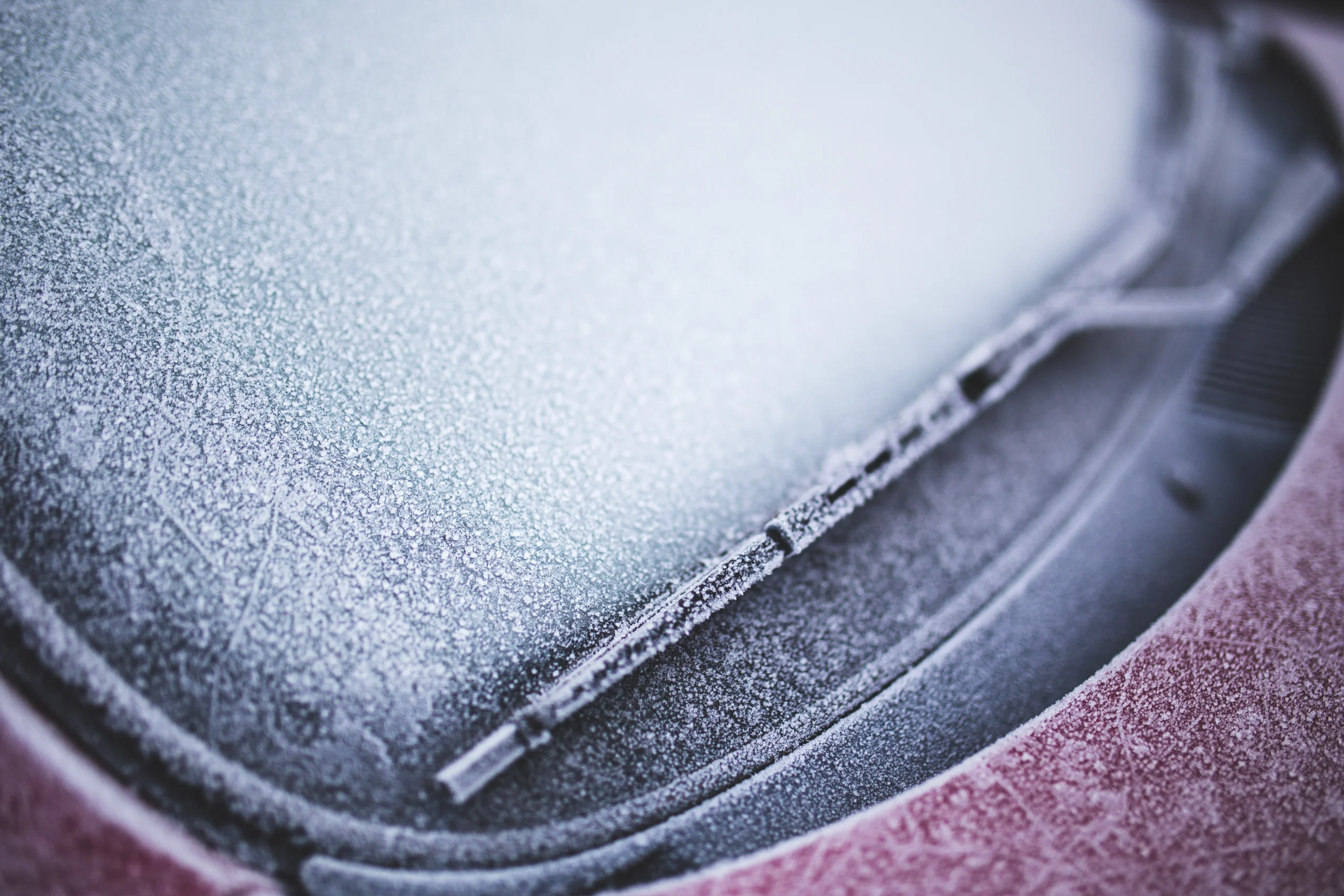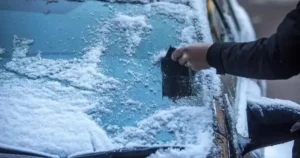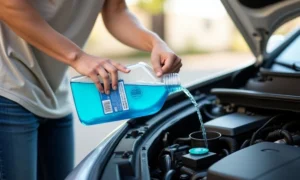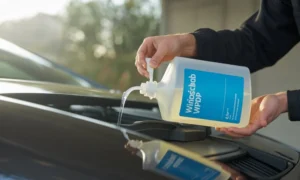Can windshield wiper fluid freeze? Understanding this query is crucial for drivers, as windshield wiper fluid plays a pivotal role in maintaining clear visibility while driving. In this context, we’ll delve into the definition of windshield wiper fluid, emphasizing its significance in ensuring a safe and unobstructed view during various weather conditions.
Can Windshield Wiper Fluid Freeze?
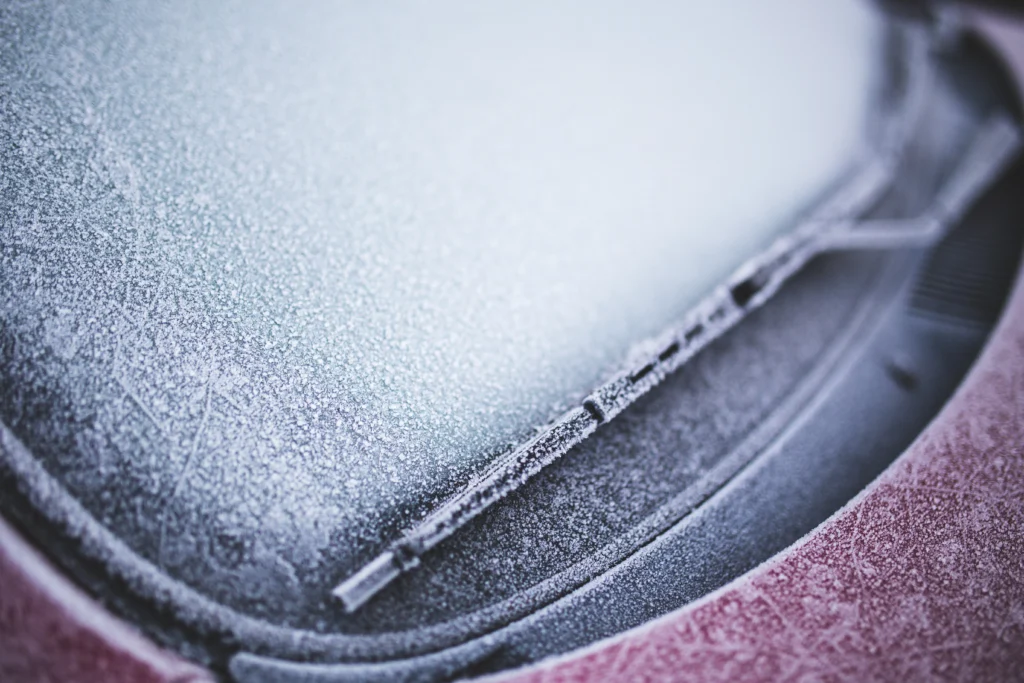
Yes, windshield wiper fluid can freeze under certain conditions. Several factors influence whether or not the fluid will freeze:
Factors Influencing Freezing:
Temperature Threshold:
- Windshield wiper fluid typically contains a mixture of water and alcohol (such as methanol or ethanol) to prevent freezing. However, extremely low temperatures can still cause the fluid to freeze.
- The freezing point depends on the concentration of the alcohol in the fluid. The higher the alcohol content, the lower the freezing point.
Composition of Wiper Fluid:
- Some windshield wiper fluids are specifically formulated for colder climates and have a lower freezing point.
- The choice of additives and antifreeze agents in the fluid can affect its ability to resist freezing.
Impact on Visibility and Safety:
Reduced Visibility: When windshield wiper fluid freezes, it cannot be sprayed onto the windshield, leading to reduced visibility. This can be particularly hazardous during winter driving conditions when road salt, snow, and ice can impair visibility.
Safety Concerns: It is essential to use a windshield wiper fluid appropriate for the prevailing weather conditions to ensure clear visibility. Failure to do so can compromise safety on the road.
Signs of Frozen Windshield Wiper Fluid:
Inoperable Washer System: If the windshield washer system is not dispensing fluid, especially in cold weather, it may indicate that the fluid has frozen.
Unusual Sounds: Attempting to use the windshield washer system when the fluid is frozen may result in unusual sounds, indicating that the pump is struggling to dispense the frozen fluid.
What Wiper Fluid Should You Use in the Winter?
In winter conditions, it’s essential to use a windshield wiper fluid that is specifically designed for cold temperatures. Here are two options:
Winter-specific Windshield Wiper Fluid:
Antifreeze Components:
Look for a wiper fluid that contains antifreeze components. These components prevent the fluid from freezing in cold temperatures, ensuring that it remains effective even in sub-zero conditions. This is crucial for maintaining clear visibility during winter weather.
Low-Temperature Ratings:
Choose a windshield wiper fluid with low-temperature ratings. This information is usually displayed on the product label. The lower the temperature rating, the better the fluid will perform in freezing conditions. Look for a product that can withstand the lowest temperatures typical for your region.
DIY Winter Wiper Fluid Solutions:
Mixing Ratios:
If you prefer a do-it-yourself approach, you can create your own winter wiper fluid by mixing water with a suitable windshield washer concentrate. Be sure to follow the recommended mixing ratios provided by the concentrate manufacturer. Avoid using too much water, as it can dilute the solution and reduce its effectiveness in freezing conditions.
Adding Antifreeze:
To enhance the freezing resistance of your DIY solution, consider adding a suitable automotive antifreeze to the mix. Antifreeze will lower the freezing point of the fluid, preventing it from solidifying in cold weather. Again, it’s crucial to follow recommended ratios to maintain the fluid’s performance.
Tips for Winter Windshield Wiper Fluid Maintenance
Regular Checks and Refills:
Frequent Inspection: Regularly check the windshield washer fluid levels, especially during the winter season when road salt and grime can accumulate quickly.
Top-up Fluid Levels: Keep the windshield washer fluid reservoir full to ensure you have an ample supply during icy and dirty conditions.
Choose Winter Formulas: Use a winter-specific windshield washer fluid that contains antifreeze components to prevent freezing in cold temperatures.
Inspect for Leaks: Periodically inspect the reservoir and associated hoses for any signs of leaks, and address them promptly.
Storage Recommendations:
Use Winter Formulas: If you live in a region with harsh winter conditions, use a windshield washer fluid with a winter formula that includes antifreeze agents to prevent freezing.
Protect from Freezing: Store extra windshield washer fluid in a location where it won’t freeze, as freezing can compromise its effectiveness.
Professional Inspection:
Annual Check-up: Include a windshield washer fluid check as part of your annual vehicle maintenance routine.
Professional Fluid Replacement: Consider having a professional replace the windshield washer fluid as part of routine maintenance, especially if you’re not confident in doing it yourself. If you want professional guidance then Reliable Auto Glass is best in business.
Inspect Wiper Blades: While not directly related to the fluid, have the wiper blades inspected during routine maintenance to ensure they are in good condition and can effectively clear the windshield.
What if My Washer Fluid Is Already Frozen?
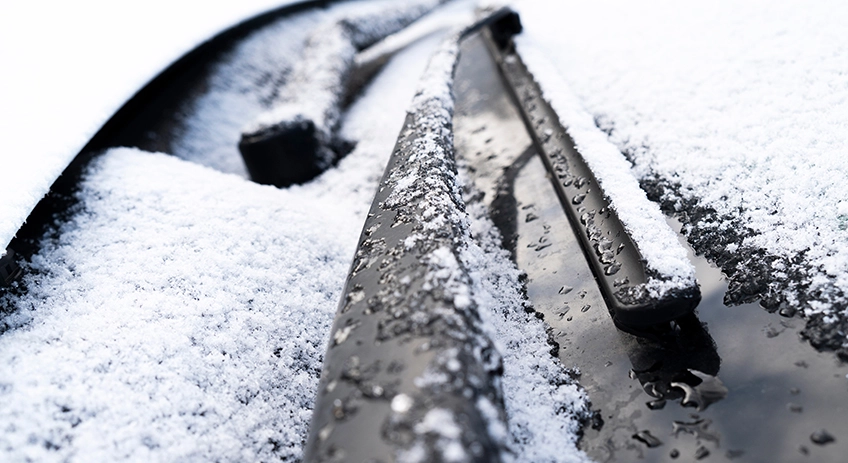
Identifying Frozen Washer Fluid:
- Check for ice crystals or solid chunks in the washer fluid reservoir.
- Attempt to spray the washer fluid onto the windshield; if it doesn’t spray or sprays inconsistently, it may be frozen.
Thawing Techniques:
- Bringing the Car to a Warmer Environment:
- Park the car in a heated garage or a warmer area.
- Allow the ambient temperature to raise, aiding in the thawing process.
Use of Windshield Defrost Function:
- Turn on the car’s engine.
- Activate the windshield defrost function, allowing warm air to circulate around the reservoir.
Adding Warm Fluid:
- Prepare a mixture of warm water and windshield washer fluid in a separate container.
- Pour the warm mixture into the washer fluid reservoir to melt the ice.
- Operate the windshield washer system to circulate the warm mixture through the lines.
Prevention of Future Freezing:
- Use a winter-grade windshield washer fluid with antifreeze properties.
- Add an antifreeze solution to the washer fluid reservoir according to the product instructions.
- Park the vehicle in a garage during extremely cold weather to prevent freezing.
- Keep the washer fluid reservoir topped up to minimize the air space where freezing can occur.
Conclusion
It is crucial to recap the key points regarding the importance of using winter-ready windshield wiper fluid. Firstly, understanding that regular windshield wiper fluid may freeze in cold temperatures is essential. When exposed to frigid conditions, conventional fluid can solidify, rendering it ineffective and potentially damaging to the wiper system. Feel free to contact us for any type of services or query like can windshield wiper fluid freeze.
FAQs
Can Windshield Wiper Fluid Freeze?
Yes, windshield wiper fluid can freeze, especially if it contains water. In cold temperatures, the water in the fluid can turn into ice, causing the fluid to become ineffective.
What Happens If Windshield Wiper Fluid Freezes?
When wiper fluid freezes, it can clog the fluid lines and damage the components of the washer system. This can result in the wipers not functioning properly, affecting visibility during winter driving.
How Can I Prevent Windshield Wiper Fluid From Freezing?
To prevent freezing, use a winter-grade windshield wiper fluid that contains antifreeze agents. These formulations are designed to withstand colder temperatures and help prevent the fluid from turning into ice.
What Is The Difference Between Summer And Winter Windshield Wiper Fluid?
Winter windshield wiper fluid typically contains antifreeze components like methanol or ethylene glycol, which lower the freezing point of the fluid. Summer fluids may not have these additives, making them prone to freezing in colder temperatures.
Can I Mix Summer And Winter Windshield Wiper Fluids?
It’s generally not recommended to mix different types of wiper fluids. Mixing can dilute the antifreeze properties, reducing the effectiveness of the winter fluid. It’s best to use one type of fluid and flush the system if changing from summer to winter fluid.
At What Temperature Does Windshield Wiper Fluid Freeze?


